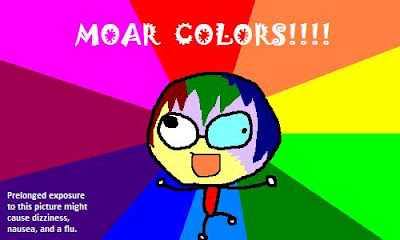
You're stranded at sea.
Having barely escaped from the devastating crash the boat had with a jagged reef rock, you now sit on a lifeboat, relieved that the dark blue sea had not swallowed and claimed your life.
Upon checking your belongings, you find a wet pair of socks, a battery-dead cellphone, a couple of cereal bars left uneaten, and a flaregun.
Oh, goody! You have a flaregun! Now you'll surely survive! Lucky you!
You shoot the only flare you brought in the gun. The shot zooms across the air, drawing an arc across the moonlit sky, until it ultimately detonates with a brilliant flash. You smile.
One hour... The light fades.
Two hours... Your smile fades.
Three hours... You're worried.
Four hours... CRAP.
That awkward moment when you know you're screwed.
That feeling you get when you know that no one is coming.

When the boy in
The Road gets curious as to what the flaregun is supposed to do, the father decides that there's nothing else better to do with it: They're not going to be saved, and no one's going to be seeing it (hopefully).
Once the artificial fire lit up in the air, the boy starts to ask:
"They couldnt see it very far, could they Papa?
Who?
Anybody.
No. Not far.
If you wanted to show where you were.
You mean like to the good guys?
Yes. Or anybody that you wanted them to know where you were.
Like who?
I dont know.
Like God?
Yeah. Maybe somebody like that." (246)
No one will help them now.
They have been abandoned, not to be helped by others, not even God.
There are no more good guys. There is no God.
People are, ironically, "angry at God for not existing." (C.S. Lewis)
In all this darkness and desolation, the fire continues to live.
The fire, the hope, being carried by the father and the son.
Is there still hope?
Yes.
 Because pet rocks are awesome.
Because pet rocks are awesome....Nine hours... It has been so long since you had a sip of water.
You're just so thirsty... You're begging for some water, some Gatorade, some tea, some kind of liquid to quench your thirst.
You're slowly losing hope...
But then you see something glistening in the horizon.
You see a light coming towards you from a distance.
There is still hope.
There is always hope.




































